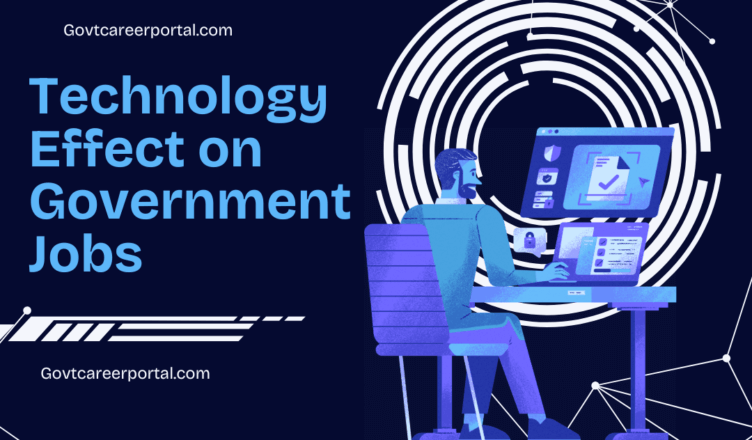Technology has significantly changed the nature of government employment in recent years. Emerging technologies, such as automation and data analytics, are changing not only the roles that people play in different industries, but also the skills that people need to succeed in these settings. We’ll look at how these changes are happening in this piece and what public sector workers need to do to adjust
1. Efficiency and Automation
Automation is one of the biggest effects of technology on government employment. Artificial intelligence (AI) and software are increasingly handling routine jobs like scheduling, data entry, and report preparation. This change increases overall efficiency by enabling government workers to concentrate on more intricate, strategic jobs.
Skills Needed:
- Digital literacy is the ability to comprehend and use software tools and platforms.
- Critical thinking is the process of evaluating information and drawing conclusions from automated discoveries.
2. Using Data Analytics to Make Well-Informed Decisions
Big data is being used by governments to improve their decision-making procedures. Agencies can find trends, better manage resources, and enhance citizen service delivery by analyzing enormous volumes of data.
Skills Needed:
- Knowledge of tools such as Excel, SQL, or specialized data analysis software is essential for data analysis.
- Statistical Knowledge: Accurate data interpretation requires an understanding of statistical techniques.
3. Tools for Digital Communication and Remote Work
The COVID-19 pandemic hastened the government sector’s embrace of remote labor. Employees can work together productively from any location with the use of tools like project management software and video conferencing. Employee engagement tactics and workplace culture have also been reexamined as a result of this change.
Skills Needed:
- Communication Skills: The capacity to express concepts intelligibly in online environments.
- Time management: Juggling obligations when working from home.
4. Awareness of Cybersecurity
The significance of cybersecurity has increased dramatically as government organizations depend more and more on digital technologies. Because protecting sensitive data from breaches is so important, employers are looking for workers who can apply best practices and comprehend cybersecurity protocols.
Skills Needed:
- Fundamentals of Cybersecurity: Understanding of fundamental security concepts and procedures.
- Problem-Solving: The capacity to efficiently address and lessen security risks.
5. Getting Used to New Technology
Artificial intelligence, blockchain, and the Internet of Things (IoT) are examples of emerging technologies that are starting to be used in government procedures. For instance, IoT can improve city infrastructure management, while blockchain can increase openness in public procurement.
Skills Needed:
- Keeping abreast on the most recent developments in technology and their applications is known as tech savvy.
- Constant Learning: A dedication to lifelong learning and training in emerging technology.Getting Used to New Technology
- Artificial intelligence, blockchain, and the Internet of Things (IoT) are examples of emerging technologies that are starting to be used in government procedures. For instance, IoT can improve city infrastructure management, while blockchain can increase openness in public procurement.
In conclusion
Technology integration in government employment is a structural change that is transforming the public sector, not just a passing fad. As new technology, data analytics, remote work, automation, and cybersecurity become commonplace, government workers need to adjust by learning new skills and adopting an attitude of constant learning. They can guarantee their continued relevance and efficacy in their positions by doing this, which will ultimately lead to more responsive and efficient governance.
.

